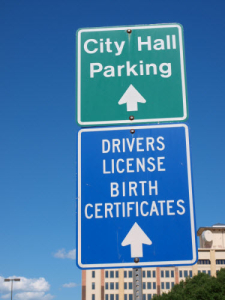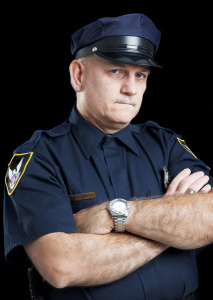Criminal Defense Attorneys in Tulsa, Oklahoma
Criminal Accusations (including Sexual Abuse  Charges) & Traffic Offenses
Charges) & Traffic Offenses
Boston Avenue Law defends clients against most types of criminal charges and will provide a free initial consultation to discuss your situation.
If there is a warrant for your arrest or if you are already in custody, we can help guide you through the process of getting through the system and out on bond. If you are in custody and do not wish to get out on bond or if you cannot afford the bond amount, we will visit you at the place where you are being held.
If you have been accused of criminal conduct or charged with a traffic offense, contact the Firm for assistance.
What to Do When an Officer Stops You
 Be polite. Be respectful. Do not run. Do not resist or obstruct the officer. Do not act in a threatening manner and try to keep your hands where the officer can see them. Do not lie to a police officer: that can be a crime. Either be truthful or assert your right to be silent, as discussed below, but do not lie.
Be polite. Be respectful. Do not run. Do not resist or obstruct the officer. Do not act in a threatening manner and try to keep your hands where the officer can see them. Do not lie to a police officer: that can be a crime. Either be truthful or assert your right to be silent, as discussed below, but do not lie.
Usually, it’s best to simply cooperate with an officer who stops you so you can get the stop over with as quickly as possible and get back to your life. However, if you are support protecting your civil rights, or if you have been engaging in criminal conduct, or if there is a warrant out for your arrest, or if you have open alcohol in a car, or if you are in possession of a controlled substance, the rules are different. In fact, even if you suspect anyone in your car might have controlled substances, you should behave as if you had the controlled substance in your own pocket. Why? Because if that other person throws the controlled substance onto the floor of the car, the police will probably say it was yours, anyway. These same more cautious rules apply if you have a felony conviction or if you are on probation or parole.
Supreme Court precedents have created a sort of “dance” that you must do with police officers who stop you in order to preserve your rights. If you do not follow the rules of the “dance,” you may give up rights to which you are entitled and voluntarily incriminate yourself. But, before you “dance,” you have to consider whether identifying yourself is optional and, if it is, whether you want to identify yourself.
Identifying Yourself
 One of the first things a police officer will ask is to see your driver’s license or identification card. Some states have laws requiring you to identify yourself if a police officer stops you with “reasonable suspicion” that you were engaged in criminal activity. However, Oklahoma is not one of those states. You have no obligation to identify yourself unless you are driving a car or flying. If you are in a bar, you might also want to identify yourself if you look like you might be under 21. However, failing to identify yourself will always make the police even more curious about you, which will make the stop take longer.
One of the first things a police officer will ask is to see your driver’s license or identification card. Some states have laws requiring you to identify yourself if a police officer stops you with “reasonable suspicion” that you were engaged in criminal activity. However, Oklahoma is not one of those states. You have no obligation to identify yourself unless you are driving a car or flying. If you are in a bar, you might also want to identify yourself if you look like you might be under 21. However, failing to identify yourself will always make the police even more curious about you, which will make the stop take longer.
Use common sense when determining whether to identify yourself. For example, if you refuse to show your driver’s license and you smell like alcohol and look like you are under 21, the officer may have probable cause to arrest you for underage drinking. Once the officer arrests you, he or she can search you. If you have identification on you, the officer will surely find it, and it would have been a lot easier to show it without being arrested. To make matters worse, the officer will also find everything else you have with you. Sometimes it’s simpler and more convenient to show your ID.
What to Do Next
It’s this simple:
 Don’t answer questions except to provide your license and insurance information. If the officer asks if you know how fast you were going, that’s a trap. If you say yes, the officer will assume you knew you were speeding. If you say know, you admit you weren’t in control of your vehicle. There are a million of these types of questions and you should ignore them by telling the officer, “I don’t want to answer any questions without my attorney present.” The fact is, the officer is not entitled to ask you where you are coming from, where you are going, and you don’t have to answer those questions.
Don’t answer questions except to provide your license and insurance information. If the officer asks if you know how fast you were going, that’s a trap. If you say yes, the officer will assume you knew you were speeding. If you say know, you admit you weren’t in control of your vehicle. There are a million of these types of questions and you should ignore them by telling the officer, “I don’t want to answer any questions without my attorney present.” The fact is, the officer is not entitled to ask you where you are coming from, where you are going, and you don’t have to answer those questions.
If the officer persists in questioning you or if the stop is taking longer than it should, move on to the next steps.
First: ask the officer, “Am I free to go?” If the answer is yes, say “Thank you,” and leave. But, if the answer is “no,” then clearly and loudly say the following three things:
“I do not consent to any searches.”
“I wish to remain silent.”
“I want to speak to an attorney.”
Then wait for an opportunity to call your attorney. If you are arrested, don’t say anything except “I wish to remain silent. I want to talk to an attorney.”
It is important to understand that you can break your own silence privilege. If you talk to the police, even to ask for water or to use the bathroom, it cannot hurt you to re-assert your right to silence. “May I have some water? Thank you. I am re-asserting my right to remain silent.” It can help you if other officers, suspects, or members of the public hear you assert your right to silence.
Do Not Try to Outsmart the Police
The police are trained to navigate around your civil rights. They are trained to get you to say things that are harmful to your case. The playing field is not level. If you lie to the police, you may be committing a crime such as obstructing justice or becoming an accessory after the fact to someone else’s crime. The police, on the other hand, can use lies and trickery to get you to confess or to give up incriminating information. If you are getting confused by police tactics or if it's easy to get you into a conversation, don’t say anything except “I do not consent to any searches. I am asserting my right to silence. I am asserting my right to have an attorney present during questioning.”
